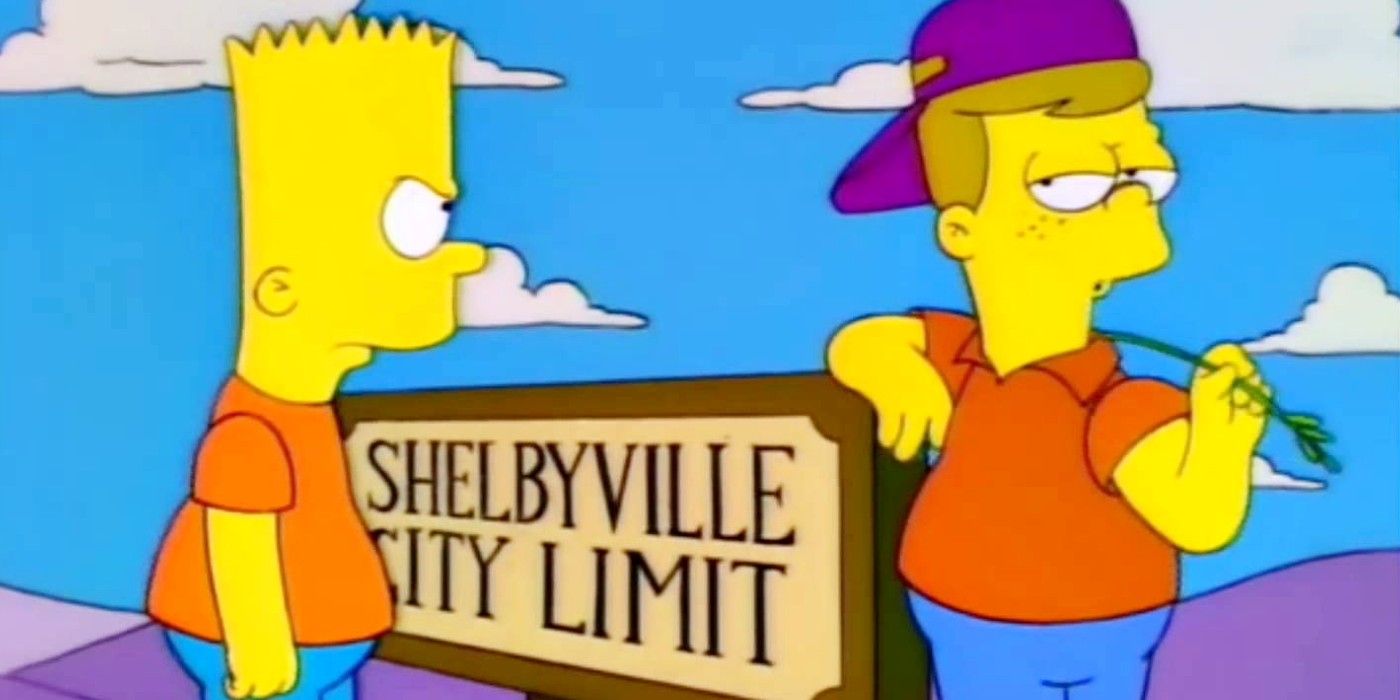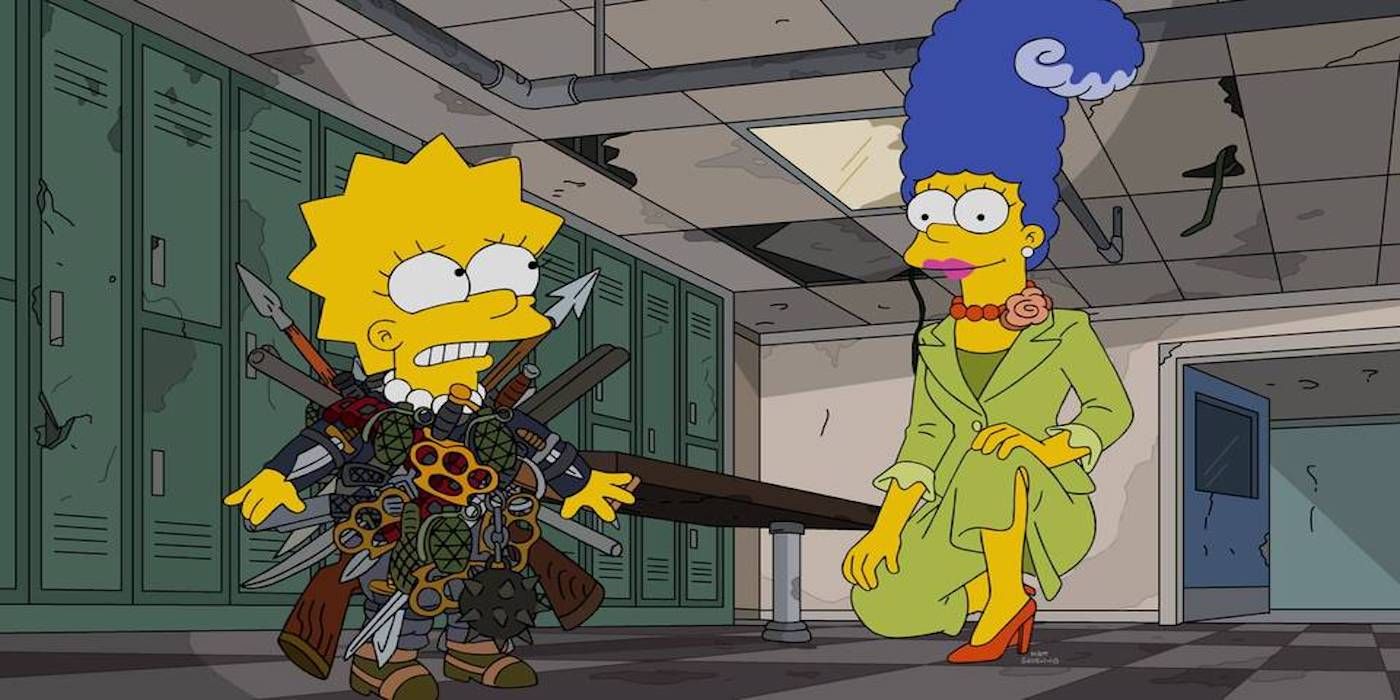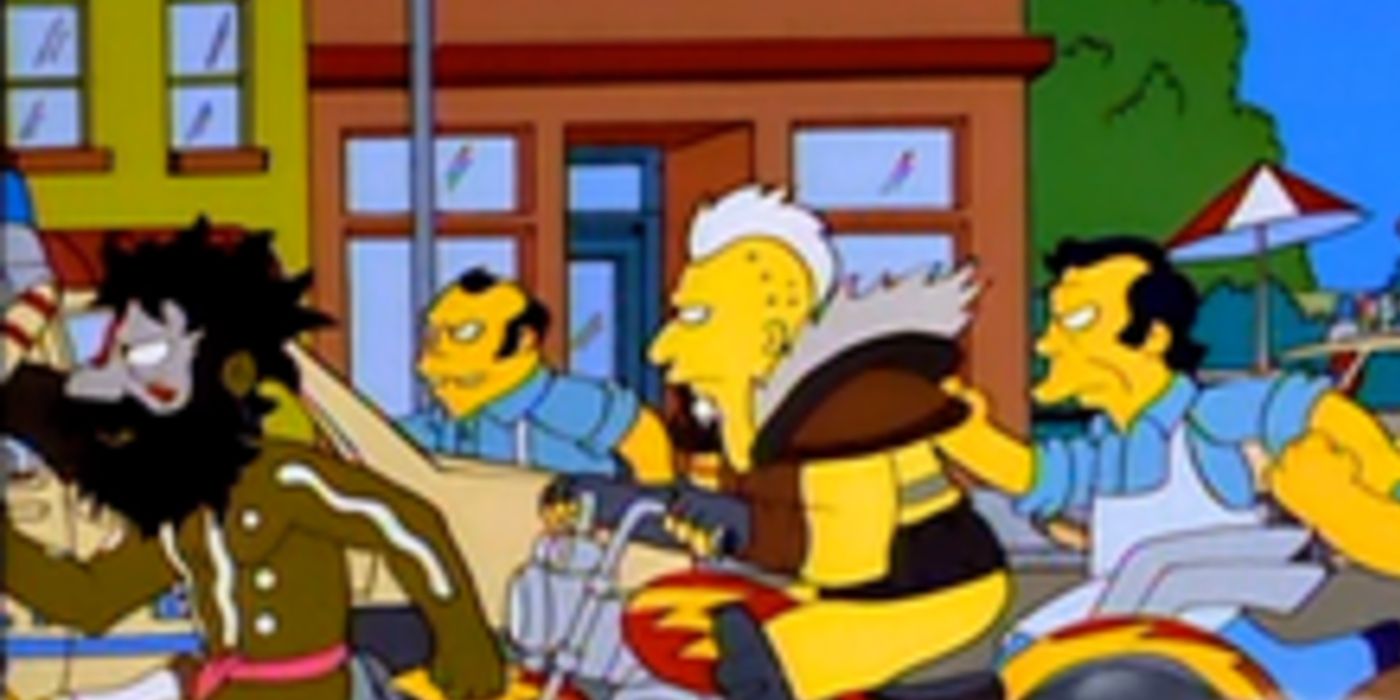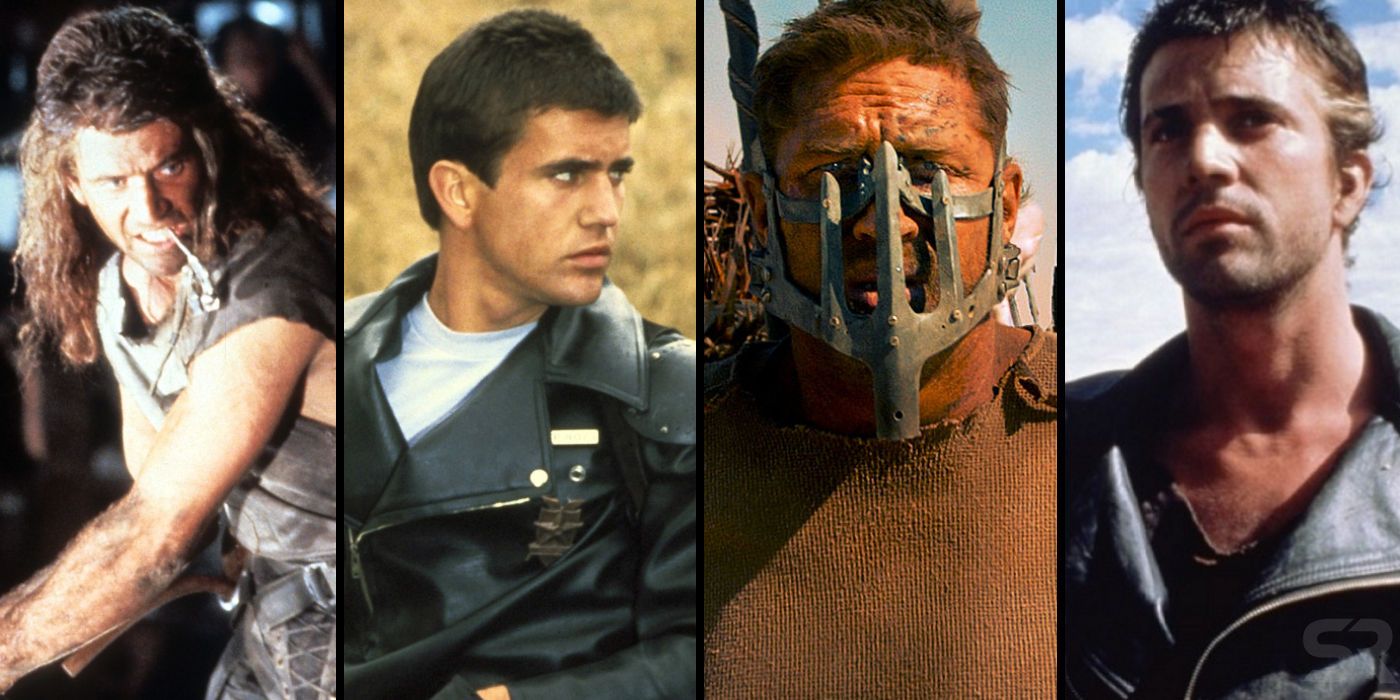
An episode of The Simpsons that fans online frequently cite as one of the long-running animated sitcom’s finest hours secretly spoofs the Mad Max franchise with its story of small-town rivalry. Over the decades that the show has spent on the air, The Simpsons has parodied all manner of famous movies and TV shows. The Simpsons "Treehouse of Horror" series, a set of annual Halloween specials, are specifically devoted to spoofing popular genre movies by casting the titular family as the leads of comedic retellings.
However, sometimes, The Simpsons is more subtle about its movie parodies. For every episode that is an unabashed recreation of its source material (like the shot-for-shot spoof of Martin Scorsese’s classic cult thriller Cape Fear featured in season 5), there are just as many notable cases where The Simpsons offered less obvious parodies of famous films. For example, one episode of The Simpsons season 13 lifts a lot of its plot from the Stephen King short story “The Body,” but doesn’t belabor the homage by recreating famous scenes from that story’s successful movie adaptation Stand By Me.
Similarly, the acclaimed Simpsons episode Lemon of Troy (season 6, episode 24) isn’t a full-blown recreation of the Mad Max series (something that The Simpsons would offer decades later in a lesser Treehouse of Horror outing). However, “Lemon of Troy” does function as a stealth parody of the classic sci-fi action franchise and a comedic refutation of the main themes of the Mad Max movies. While Mad Max’s plots all tell a tale of a heroic drifter who doesn’t expect credit for his good work and who isn’t wedded to any one place, ”Lemon of Troy” sees Bart (and later Homer) trying to save their hometown’s honor in a plot that the episode itself admits ultimately is all pretty pointless.

“Lemon of Troy” begins with Bart coming across wet cement and immediately seeing this as an opportunity to prove how cool he was to future generations. Bart then gets in trouble for vandalism and begins dismissing Springfield, prompting Marge to teach him a lesson about local pride. Much like The Simpsons season 33 finale lectured Bart on the breakdown of America’s middle class, Marge proves to Bart that he should take pride in Springfield (while, ironically, showing the viewer how shoddy and disreputable much of the town’s infrastructure is). By the end of her speech, Bart believes and internalizes his mother’s maxim that “this town is a part of us all,” and now sees this as his new route to future fame. Bart is thus inspired, alongside his friends, to liberate Springfield’s prized lemon tree when it is stolen by some Shelbyville kids.

While a lot of the satire of the Mad Max franchise featured in “Lemon of Troy” consists of subtle reversals of the characters and situations seen throughout the movies, some of the episode’s references to the series are more direct. Like “Bart Vs Australia,” The Simpsons episode references The Road Warrior by lifting a specific shot from the acclaimed Mad Max sequel. The scene where Bart and the boys spy on their lemon tree, impounded and surrounded by Shelbyville kids circling it on their bikes, is a direct lift from The Road Warrior while the episode’s earlier narration is a less obvious nod to the same sequel. The scene where Grandpa recounts the story of the lemon tree and the town’s founding is similar to The Road Warrior’s narration, as is the ending of the episode’s revelation that a Shelbyville grandfather was telling an opposing version of the same story to their town’s kids. This idea—that history is rewritten by everyone involved to make themselves the heroes—is part of how The Simpsons episode takes aim at the Mad Max movies.

Every Mad Max movie's plot is different from its predecessors, but the four installments of the series (three of which were released before The Simpsons episode aired) all follow the same basic story structure. While Mad Max never sees himself as a hero, he spends each movie appearance liberating the downtrodden and becomes a legendary figure because he stands up for the meek and the weak while ensuring that they have access to precious supplies like water and fuel. In contrast, Bart starts the episode by fantasizing about being seen as a hero and proceeds to then engineer a situation that will allow this to become a reality. He starts a turf war over Springfield’s superiority over Shelbyville before sneaking into the town to get back a supply of lemons that he and the rest of the kids don’t care about.
The heroes of Springfield, like their Shelbyville enemies, are more concerned about their hometown’s pride than the tree itself. Where Mad Max’s villainous Immortan Joe controlled water and earlier franchise antagonists restricted the public's access to fuel, Shelbyville’s kids steal a tree that is ultimately only valuable as a symbol. This point is proven by Homer trashing the tree on the way out of Shelbyville and the Springfield natives ignoring this fact, replanting the tree and making no attempt to cover up the fact that half of it is visibly destroyed in the closing scene.

"Lemon of Troy” lets The Simpsons parody the Mad Max franchise by inverting the concept of the movies. Where Mad Max is reliably reluctant to join any dispute and wants to be left alone to brood more than anything, Bart jumps at the chance to start a war and even dubs himself the “team leader” the instant the fighting begins. Where the mysterious Mad Max becomes a mythical figure despite his attempts to keep a low profile, Bart is dismayed to hear that the Shelbyville locals have no idea who he is despite his attempts to become an infamous figure among the ranks of his supposed enemies. Finally, where the Mad Max movies show that a community is only as valuable as its ability to accept outsiders into its fold, The Simpsons episode sees the small-town of Springfield revel in its pointless rivalry with a town that is pointedly depicted as being almost the same as Springfield, complete with a tavern named Joe’s and lookalikes of many supporting cast members of the series.
Comments
Post a Comment